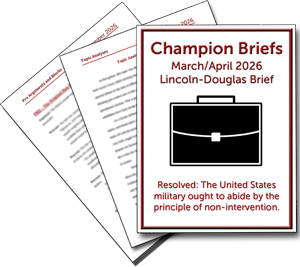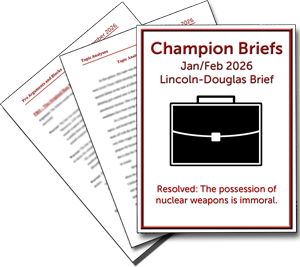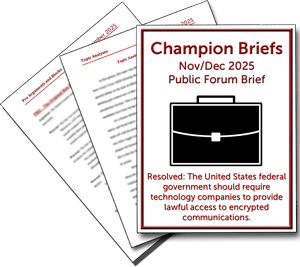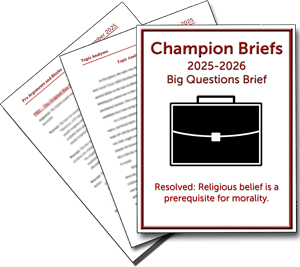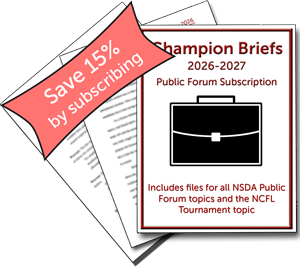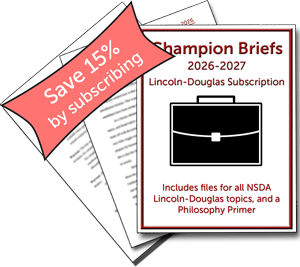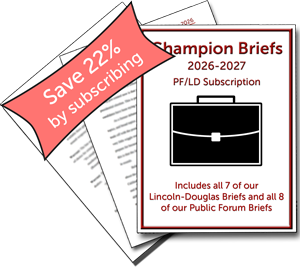Welcome to Champion Briefs!
Champion Briefs is a trusted debate resource provider. We help students become Champions –individuals who excel at critical thinking, public speaking, performance, and argumentation while positively contributing to the community.
We offer comprehensive guides for Public Forum and Lincoln-Douglas debate topics. In each of our topic briefs, you'll find detailed topic analyses, cited evidence, and comprehensive information to help students and coaches prepare for debates and learn about the world.

Featured Briefs
Files on the most recent topics to help your team prepare for upcoming debates.

Subscription Discounts
Our subscriptions give you access to all files offered during the 2025-2026 school year! You can pay by credit card or request an invoice for fulfillment by purchase order.
The best part: you'll save up to 33% on the price of individual briefs (before coupon discounts)!

About Us
At Champion Briefs, we believe in the transformative power of debate.
We're here to help your team develop key skills like critical thinking, persuasive speaking, and confidence while learning about our world.
Our team of experienced coaches and alumni work tirelessly to provide top-notch resources, including monthly briefs, free video analyses, and insightful articles. Join us and explore how debate can shape your future!


Free Resources
Video: March Public Forum Topic Analysis
Prepping for the March topic in Public Forum? Here's an in-depth, high-level topic analysis from our writers about the corporate residence acquisition topic!
Read More...
The Deterrence Dilemma: Moral Frameworks And Nuclear Possession
The January/February Lincoln–Douglas resolution – Resolved: The possession of nuclear weapons is immoral – forces debaters to confront a paradox at the heart of modern international politics. Nuclear weapons are rarely used, yet their mere existence profoundly shapes global behavior. Supporters argue that possession prevents catastrophe through deterrence; critics respond that threatening mass destruction is itself morally indefensible. What makes this topic especially challenging is that it is not about use, but about possession. That distinction matters. A weapon can sit idle for decades while still altering incentives, creating risks, and expressing moral commitments. Whether that state of affairs is immoral depends almost entirely on the ethical framework a debater adopts. This article explains how several major moral lenses evaluate nuclear possession—and why they reach sharply different conclusions. Understanding these frameworks helps debaters move beyond generic “deterrence good” or “nukes bad” claims and toward precise, judge-adaptable moral analysis.
Read More...

Flexbooks from Champion Press
Flexbooks are the best way for students to learn how to debate! Guided tutorials and 125+ interactive activities make these comprehensive books perfect for classes or after-school teams.

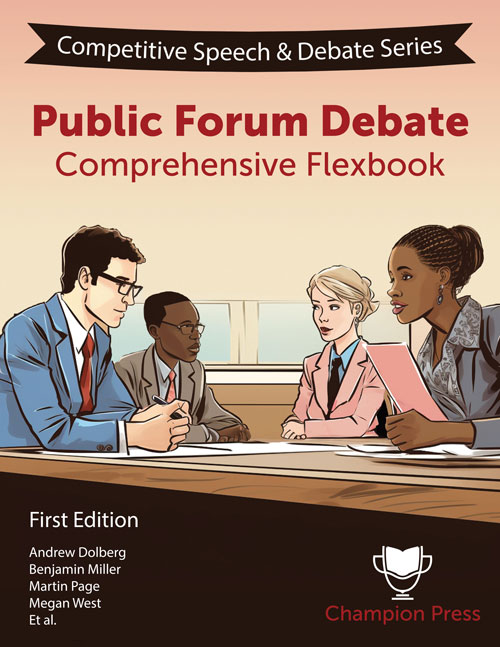
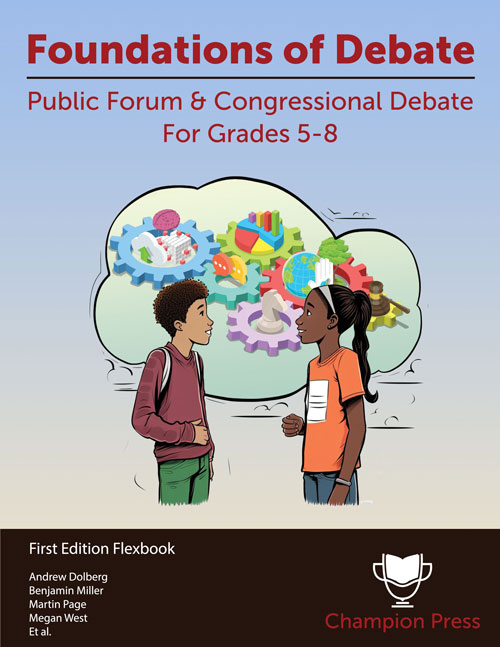

All Briefs
Here are our recent files for Public Forum and Lincoln-Douglas Debate. All briefs we've published over 13+ years are available in the Archive.
